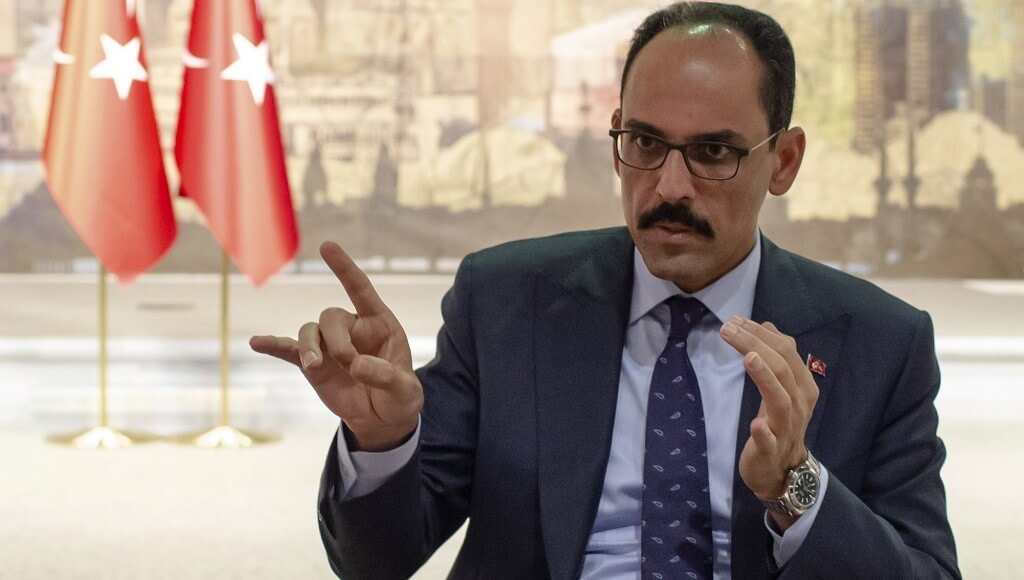Ronen Bar, the head of Israel’s domestic intelligence agency Shin Bet, allegedly had a secret meeting with Turkish intelligence chief İbrahim Kalın in Ankara over the weekend, Israeli media reported on Monday.
The secret talks focused on the fate of Israeli hostages held by Hamas in the Gaza Strip and Turkey’s possible role in facilitating their release, according to Israeli media.
Israel launched a military campaign on the Gaza Strip in retaliation for an unprecedented Hamas incursion on October 7, 2023 that resulted in the death of some 1,200 people, most of them civilians, and the taking of around 250 hostages.
According to the health ministry in Gaza, more than 43,900 people have been killed in Gaza since then, mostly civilians.
According to reports by the Israeli news outlets Walla and Yedioth Ahronoth, Bar’s visit was aimed at discussing efforts to resume negotiations on a prisoner exchange with Hamas. Also on the agenda was the possibility of Turkey providing support in this matter, albeit not as the primary mediator.
An unnamed senior Israeli official told Yedioth Ahronoth that it was unlikely that Turkey would take on the role of mediator in a possible agreement. This comes after Qatar announced last week that it would suspend its mediation efforts until both Israel and Hamas show a genuine willingness to resume talks.
The reports of a meeting between Bar and Kalın came amid unconfirmed reports that Qatar had expelled senior Hamas leaders who then allegedly left for Turkey. A Turkish diplomatic source who spoke to Reuters denied these claims, stating that while Hamas leaders do visit Turkey from time to time, their political office has not been moved to Ankara. Hamas also dismissed the reports as rumors spread by Israeli authorities.
As Qatar withdraws from its role as mediator, Egypt is expected to take the lead in mediating talks between Israel and Hamas. Cairo has played a central role in mediating between the two parties in the past, using its geographical proximity and diplomatic relations with both sides.
Turkey’s official stance has been one of strong condemnation of Israel’s military actions in Gaza. Recently, President Recep Tayyip Erdoğan called for an arms embargo on Israel, aligning with Turkey’s public denunciation of the high civilian death toll in Gaza.
Erdoğan has repeatedly accused Israel of “genocidal behavior” and compared the actions of the administration of Prime Minister Benjamin Netanyahu to those of Nazi Germany.
Erdoğan’s rhetoric against Israel has intensified in recent months, with the Turkish president claiming that Israel’s expansionist aims could eventually target Turkey. In a speech to the Turkish parliament in September, Erdoğan claimed that Netanyahu’s administration harbors ambitions to extend control over parts of Anatolia.
This rhetoric marks a sharp departure from the tone of bilateral relations just a year ago. In September 2023 Erdoğan met with Netanyahu on the sidelines of the United Nations General Assembly in New York, where the two leaders discussed potential energy cooperation.
However, the escalation of Israel’s military actions in Gaza, which have devastated much of the territory and left its civilian population in dire need, has caused relations to deteriorate rapidly.
Yet, despite the political fallout, Turkey and Israel remain economically interdependent. Diplomatic ties have not been fully severed, and key trade agreements, such as a 2022 aviation deal, remain in effect. Intelligence cooperation between the two countries also continues behind the scenes, according to security sources.
Critics have accused Erdoğan of exploiting the situation for domestic political gain, using anti-Israel rhetoric to rally nationalist support amid economic challenges in Turkey.



